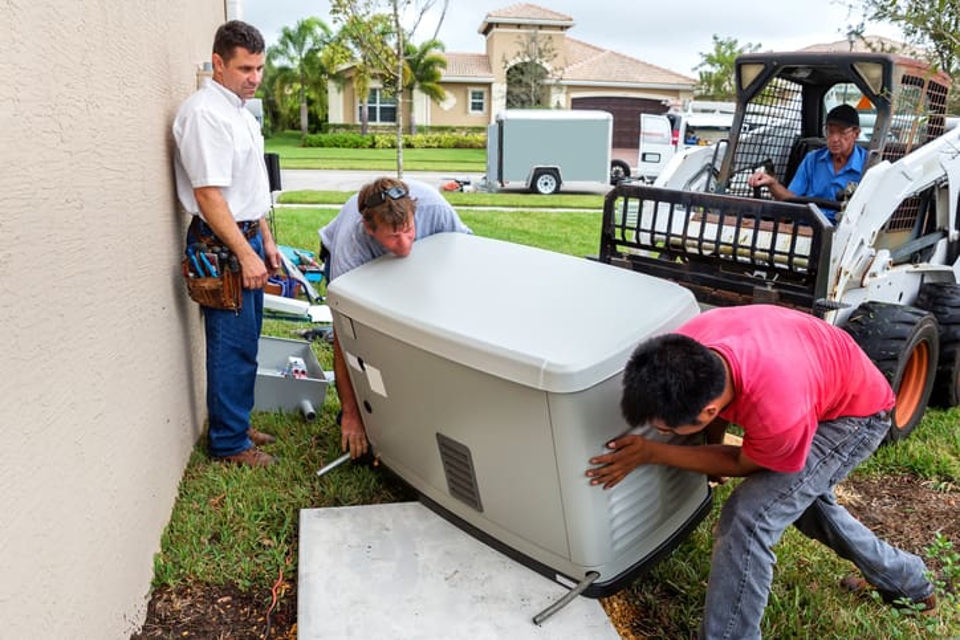When it comes to commercial electrical services, knowing what to expect makes a big difference. From installations to repairs and routine maintenance, businesses have a lot of questions about what’s covered, how services work, and why it matters for safety and efficiency.
What Services Are Included in Commercial Electrical Work?
Commercial electrical work covers much more ground than what you’d deal with at home. When you’re running a business, your electrical setup usually needs to handle bigger demands and more complicated systems. You’re likely dealing with higher power demands, specialized equipment, and a layout that requires careful planning. New installations, wiring upgrades, and system maintenance all fall under commercial services.
One of the most common requests involves wiring for new construction or renovations. Whether you’re setting up a new shop or adding onto a factory, good wiring keeps everything running the way you need. That covers everything from getting the lights up and running to powering heavy-duty machines. Office buildings may require structured cabling to support modern communication networks while restaurants often need precise wiring to handle large kitchen appliances.
Safety checks and code compliance also come up frequently. Businesses have to follow local codes and regulations that dictate everything from outlet placement to emergency lighting. Regular checkups help you stay on top of things and avoid unnecessary headaches. Even swapping out old outlets to meet today’s standards can affect your insurance and safety. Staying up-to-date keeps your employees, customers, and equipment in good shape.
Maintenance is another big part of commercial work. This can include testing and replacing circuit breakers, inspecting panels, and addressing small issues before they grow into expensive repairs. Preventive care goes a long way to help keep your systems reliable, especially if your business relies heavily on uninterrupted power. The last thing you want is for a faulty breaker to shut down production or for an outdated panel to cause a fire hazard.
How Is Commercial Electrical Work Different From Residential Services?
At first glance, it might seem like all electrical work follows the same principles. Commercial jobs are a whole different ballgame from residential ones. For starters, businesses usually need way more power than a regular house, so their systems have to handle heavier loads. That means everything from the wiring to the breaker panels needs to be kept up.
Commercial work also tends to be more specialized. While residential jobs usually focus on general lighting, outlets, and basic wiring, businesses have more unique needs. Office buildings need structured cabling for the internet and phone systems. Restaurants need wiring that can support heavy-duty kitchen appliances without causing overloads. Industrial facilities require specific setups for machinery that pulls significant power.
Code compliance becomes more complicated, too. Business properties must meet stricter standards, especially when they welcome the public. Emergency exits need proper lighting. Certain areas may require ground-fault circuit interrupters (GFCI) for safety. Older buildings that have been converted into offices or retail spaces often need significant rewiring to meet today’s codes.
The stakes also tend to be higher. If something goes wrong at home, it’s frustrating. If something goes wrong at your business, it can affect revenue, employee safety, or even your operating permits. A power outage at a restaurant can lead to lost inventory. Bad wiring at work can slow everything down. Having good systems in place means fewer problems and less stress.
What’s Involved in an Electrical Safety Inspection?
Safety inspections play a big role in commercial electrical work. They’re meant to identify issues before they become hazards. During an inspection, the electrician looks over your wiring, panels, outlets, and circuit breakers to make sure everything’s working right. They check that the wiring is secure and can handle your power needs.
Frayed wires, loose connections, and improper splicing all pose safety risks. They will look for signs of wear or damage, especially if your building has undergone recent renovations or additions. Even small issues like exposed wires or poorly supported cables can cause trouble if left unattended.
Panels and breakers get extra attention since they’re the heart of your system. If something’s off there, it can mess with everything in your building. Breakers that trip frequently or feel warm to the touch need investigation. Old panels that haven’t been upgraded may not be able to handle modern power demands. During an inspection, the electrician will ensure your setup can handle your business’s needs without overloading.
Outlets and switches are checked for signs of damage or wear. Loose outlets, scorch marks, or buzzing sounds can indicate problems. The electrician will probably test your GFCIs to see if they’re working like they should. If you’ve got outlets or switches acting up, getting them fixed quickly helps you avoid shocks or fire risks.
Testing your system’s grounding becomes another important step. Good grounding keeps extra electricity from causing problems by sending it away from your building. If it’s not working right, you’re at risk for surges and damage. Fixing grounding issues early keeps your system safer and helps you avoid expensive repairs.
What Types of Maintenance Should Businesses Schedule?
Your business electrical system will work better if you keep it in good shape. Catching problems early keeps them from turning into bigger, more expensive issues. Scheduling regular maintenance checks helps you avoid interruptions to your daily operations.
Testing and replacing breakers help prevent nuisance tripping. If your breakers keep tripping, something’s off. It could be an overloaded circuit or a breaker that’s worn out. Regular testing helps you catch those problems early so that you can fix them before they cause bigger issues.
Keeping your work area safe and useful means taking care of the outlets and switches. Damaged outlets can cause sparks, while worn switches may not respond properly. Replacing them when needed prevents electrical problems from getting worse.
Updating panels and wiring should also be part of your maintenance plan. Older systems weren’t designed to handle modern energy demands. It’s important to make sure your wiring and panels can handle the extra load if you’ve added new tools or grown your business.
Cleaning your system helps prevent buildup that can interfere with connections. Dust, moisture, and other debris can cause damage if left unchecked. A clean, well-maintained system is more reliable and efficient.
When Should You Call a Professional for Electrical Work?
Knowing when to call an electrician makes all the difference. Swapping out a light bulb or replacing a fuse is usually no big deal. But when it comes to wiring, panels, or bigger projects, it’s smarter to call in a pro.
If you’re dealing with power outages, flickering lights, or dead outlets, those are signs something’s off. It could be a bad breaker, or it might hint at deeper problems that need a closer look.
Major projects like adding new circuits, upgrading panels, or wiring a remodel call for a trained electrician. They have the knowledge and tools to do the job safely, and attempting these tasks without proper training can lead to dangerous situations.
Get Your Commercial Property Ready for All Your Electrical Needs
We’ve been serving customers for more than 40 years. At Swift Brothers in Charlotte, NC, our full line of commercial electrical services includes installation, electrical repair, electrical wiring and rewiring, security and landscape lighting, surge protection and more. If you’re ready to get your questions answered and your project started, give us a call today.
The post Top FAQs About Our Commercial Electrical Services Answered appeared first on Swift Brothers.





